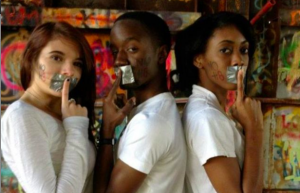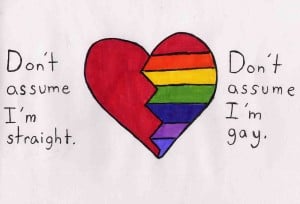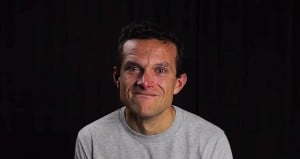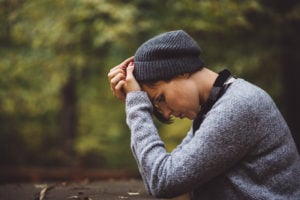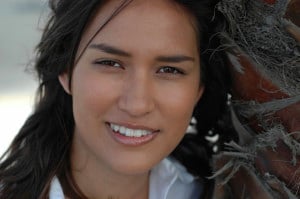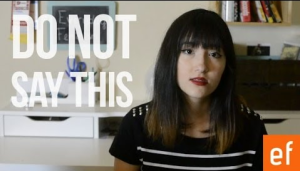
Hand holding the American flag.
I remember when the first photos of Aylan Kurdi started appearing on my news feed. A tiny refugee child’s body washed up on a Turkish shore.
I read that he was fleeing Syria in a boat with his family, but the boat capsized in the Mediterranean Sea, drowning Aylan.
This was a critical moment in the refugee crisis when media and the humanitarian community roared to life and suddenly — for that brief moment — everyone began talking about the need to help Syrian refugees and sharing calls for donations on social media.
Like the photo of the well-known ‘Napalm Girl’ photo that helped stop the Vietnam war, this photo of Aylan showcased was the single tragedy that clarified the need to do more for refugees, and even The New York Times agreed.
Although I was glad to see a slight change in the portrayal of refugees and an outpouring of donations to nonprofits like the UNHCR, I was frustrated.
Frustrated that there were countless more children whose circumstances mirrored Aylan. But their black and brown faces did not garner donations. No one knew their names and no one felt the urgency to help.
The majority of identifiable deaths that occur during migration are refugees and asylees from Africa, according to Missing Migrant Project, a project dedicated to tracking deaths along the migratory routes.
In 2016 alone, an estimated 3,710 of the 6,315 reported deaths of migrants (refugees and asylum seekers) were African.
These numbers are shocking and yet, somehow, the heart-wrenching pictures and stories that are circulated in the media about refugees are mostly light-skinned, conventionally attractive and Arab.
Why do we not grieve the loss of African life? Why do we not know their stories? Why do we not give the same attention and resources to refugees from Africa, who have been the most affected by this crisis for far longer?
If your empathy for refugees is reserved strictly for those whose make you feel comfortable because of their lighter skin, who look like you or fit your definition of goodness, then you are helping perpetuate the system of racism.
Black and brown people in other countries are expected to just deal with daily violence, poverty, and authoritarianism, but if the same events were to occur in Western countries, the media and policymakers feel “appropriately” pressured to give their attention.
With more than 65.3 million refugees in the world fleeing civil war, ethnic cleansing, poverty and other disasters, it can seem difficult to keep up, but what’s happening — or not happening — to African refugees cannot be swept to the side.
Here are some facts that demonstrate how entrenched anti-Blackness is in the migration narrative:
- In 2016,16,370 Congolese refugees were admitted to the United States, the highest number of refugees from any nation, according to Pew Research, but you’ve probably never heard much about Democratic Republic Congo outside the Ebola outbreak or the fact that they have the most displaced people in the world from conflict.
- Somalia is suffering from a drought, the closure of Dadaab, the biggest refugee camp in Africa where its refugees have been living for years and most recently, a truck bombing that killed 300 people, yet Trump still lists the country in his travel ban.
- Nigeria hosts more refugees than all of Europe, but President Macron of France and other EU leaders wants to stop African refugees from seeking asylum in Europe.
- Israel has implemented a secret program to get rid of African refugees by pressuring them to illegally cross into other countries and leaving them vulnerable to smuggling, detention or abuse.
- A Norwegian official wanted to send Eritrean asylum seekers back home, claiming that they don’t truly need the protection.
It’s clear that Africa, as a continent, is more overburdened by refugees than non-African continents, yet there is no huge movement to help relieve this problem.
Most people aren’t even aware these African countries even exist, let alone know about the history of their conflicts stemming from the time of colonization from European countries.
As a daughter of Eritrean refugees, I’ve grown up with an intimate knowledge of Eritrea, a small East African country bordering the Red Sea, where my family is from.
Eritrea is one of the top refugee-producing countries in the world because of crushing poverty and an oppressive regime.
The Eritrean government forces its citizens into indefinite military service, offers no freedom of expression or political participation, tortures dissidents and fails to provide adequate education, jobs, and food.
And yet, though I have a Google Alert set up for ‘Eritrean refugees’ so I can track the number of published reports and articles, I only get a few hits every other week — mostly from bloggers in the diaspora.
One of the only times I’ve seen this unfair disparity acknowledged is in a 2015 piece by Caitlin Chandler on the ‘Africa is a Country’ blog.
In it, Chandler challenges the Western media bias towards extensively reporting on Syrian refugees from inside the country and the international community’s response.
There are hardly any stories chronicling the nuances of the Eritrean refugee crisis, the conflict and the high number of deaths.
The top stories I have read on Eritrea are tragic and should be grabbing our attention. Thousands of Eritrean refugees are dying in the Mediterranean Sea trying to reach Europe by boat and are stuck indefinitely in refugee camps in Sudan with very little options to make money.
Their stories are horrific. Many of them are captured for organ harvesting after taking their chances with a smuggler. Young women are often trafficked into domestic labor in the Middle East and Europe, where they are blackmailed into never trying to contact the authorities.
Eritrea has little to offer the West, so it’s not surprising that the coverage of their crisis is nothing compared to refugees from the Middle East, who are associated with the risk of terrorism and the U.S. political agenda.
Because of that, the Eritrean government is able to shrug off sporadic reports on the refugee crisis as mere propaganda.
There are hardly any rallies, fundraisers or campaigns pressuring action to admit more Eritreans. In fact, just last month the U.S. government announced it wants to deport more Eritreans, even though these refugees pose no threat whatsoever.
This lack of media attention is dangerous because it turns into a bias against African refugees in the resettlement process.
As a refugee resettlement case manager, Hadiya remembers one attempt to find immediate housing for two African asylees in New York. She reached out to community religious organizations to get some options.
When she stated that she was looking for housing for ‘refugees/asylees,’ she was asked, more than once, if they were Syrian and when she said they were not, received uninterested reactions before the phone call ended.
Hadiya ended up referring them to a YMCA for temporary housing until she was able to give convince someone that they, too, were affected by the refugee crisis we’ve all been hearing about.
The angry self-awareness was incredibly painful to hear.
No one is born less deserving than someone else. No one should be more ‘accustomed’ to lack of safety, rights, and comfort than others. African bodies aren’t more susceptible or more deserving in calling the Mediterranean sea their eternal home.
We should be ashamed that these conversations about bias are not only taking place in academia and advocacy circles, but also by those actually living through the refugee experience.
They are embarking on dangerous journeys knowing that their grievances aren’t validated by their own government or the international community, but that hasn’t stopped them from believing their life is worthy enough to try.
There’s a lot going on in the world right now, and it’s overwhelming. But still, I implore you to continue paying attention this crisis.
Here’s how you can help:
- Donate to organizations like the UNHCR and ARAHA that support African refugees
- Volunteer with resettlement efforts in your city with agencies like the International Rescue Committee
- Share stories and updates about the African refugee crisis in school, in your community, organizing circles, and on social media
Here’s how you can stay informed:
- Read Refugees Deeply, a comprehensive news site focused exclusively on refugee issues
- Read Africa is a Country, a site created to “challenge the received media wisdoms about Africa from a left perspective”
- Read Open Migration, a site that seeks to create understanding through data and advocates for the dignity of migrants
***
If we don’t acknowledge anti-blackness, the media will continue to underreport the plight of African refugee crisis because we have accepted the massive death toll and cycles of violence as normal.
If we don’t acknowledge anti-Blackness, then the humanitarian system will continue to watch as African countries struggle to accommodate refugees and African refugees endure harassment and marginalization as a double minority.
[do_widget id=’text-101′]
Nesima Aberra is an Everyday Feminism Reporting Fellow. Nesima is a writer and digital strategist passionate about social impact. She received her undergraduate degrees in Journalism and Global Studies from Arizona State University and her master’s degree in International Media from American University. In her free time, she enjoys reading, creative writing, traveling, and performing with The Sanctuaries and the Muslim Writers Collective. Follow her on Twitter: @NesimaAberra.
Hadiya Abdelrahman is an Everyday Feminism Reporting Fellow. Hadiya graduated from Rutgers University with a double major in Women and Gender studies and Middle Eastern Studies. Hadiya currently works with refugees and asylees in NYC. When she’s not at work, Hadiya writes angry rants and poetry. She enjoys writing about topics that focus on refugees, intersectional feminism, and state violence against people of color.
Search our 3000+ articles!
Read our articles about:
Our online racial justice training
Used by hundreds of universities, non-profits, and businesses.
Click to learn more





